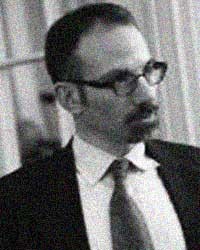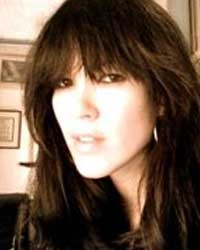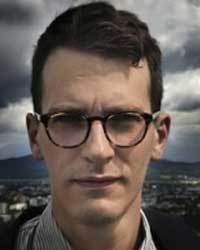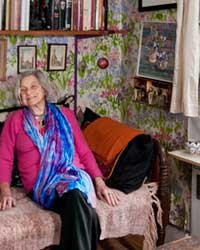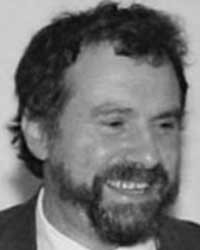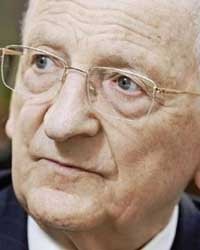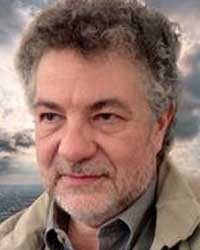Nate Kravis: THE ANALYST’S HATE FOR ANALYSIS
Dr. Kravis is a Clinical Associate Professor of Psychiatry at Weill Cornell Medical College, and Training and Supervising Analyst at the Columbia University Center for Psychoanalytic Training and Research. Has lectured and taught widely; author of more than a dozen publications, mostly on topics in the history of psychoanalysis and psychiatry; recipient of two awards for teaching (Payne Whitney Clinic, 2001; Klar Award, Columbia Psychoanalytic Center, 2005), and one for writing (Beller Award, Columbia Psychoanalytic Center, 1992). Private practice in Manhattan since 1987.
Marc Strauss and Jamieson Webster: PSYCHOANALYSIS AND THE OBSESSIONAL
Marc Strauss M.D. is a psychiatrist and psychoanalyst in private practice in Paris. He has worked for many years in a hospital for psychotic children, and as a consultant in Hospital Sainte Anne. He is a founding member of the International Psychoanalytical School of Forums of Lacanian Field and a teacher in Collège clinique de Paris. He has written many papers in psychiatric and psychoanalytical journals. Lecture Topic: If we want to speak of female obsessional neurosis we first have to know what obsessional neurosis is as such. This is not an easy question, because even the most characteristic symptom, such as the ritual or OCD, as it is called nowadays, belongs to the most different personalities. Indeed, what does someone who cries all day in thought of her dead father have in common w...Read More
Samo Tomsic: PSYCHOANALYSIS AS ANTI-PHILOSOPHY
Samo Tomšič studied Philosophy in Ljubljana and received his doctorate at the Institute for Philosophy there with a dissertation entitled “Was ist Antiphilosophie?” (“What is anti-philosophy?”). In the past year he has worked for the Scientific Research Centre of the Slovenian Academy of Sciences and Arts. Between 2011 and 2013, he was a Humboldt Fellow at the Department for German Literature at Humboldt-Universität zu Berlin. His current research is dedicated to the philosophical questions of formalisation, the history of rationalism and the topicality of the structuralist programme. He is a research associate on the base project Models in Cognitive Processes.
Conference: Psychoanalysis and Laughter
Psychoanalysis and Laughter What does psychoanalysis have to tell us about laughter? In his Jokes and Their Relation to the Unconscious (1905), Freud famously illuminated the Witz’s linguistic and economic properties. Linguistically, the Witz “works” like the dream (by condensation and displacement); economically, it bypasses the “inhibiting factor” both in the teller of the joke and in the listener. Jokes are serious business for Freud: like dreams, they allow aggression an acceptable form, establishing a social tie while satisfying repressed wishes. Jokes are serious business for Lacan too. Of necessity, the analysand speaks “à coté du vrai” (beside truth) because speech ignores the real. In the symptom, however, the real manifests itself by not stopping, just like the persistent grin of...Read More
Karen Proner: KLEINIAN DEVELOPMENTS
Karen Proner is an adult and child analyst who was trained in England,. She is presently living in New York and is a member of the NYFS and a faculty member of IPTAR. She is a training supervisor for the Child Analysis Training at the Freudian Society, and the Child Psychotherapy Training at IPTAR. She is a faculty member at the Centro Studi Martha Harris in Florence, Italy. She has been an editor of the International Journal of Infant Observation and has published papers in various journals and in a book on Terrorism. Her interest is in infant observation and Bion’s understanding of the learning process and its use in training psychoanalysts. Case presentation: Will Braun Dr. William Braun is a clinical psychologist and psychoanalyst in private practice who works with adults, c...Read More
Anni Bergman: SCREENING AND DISCUSSION OF “THE POWER OF THE RELATIONSHIP”
Anni Bergman was born in Vienna and immigrated to the United States in 1939. She graduated with a degree in music from the University of California and eventually settled in New York City with her husband, writer and publisher Peter Bergman, with whom she had two sons. While in California she met the psychoanalyst Christine Olden, who became a close friend and important influence. In 1959 Dr. Bergman began to work with Margaret Mahler on the observational study of the separation-individuation process. She is co-author with Margaret Mahler and Fred Pine of The Psychological Birth of the Human Infant. Following her work with Dr. Mahler, Dr. Bergman continued to practice and teach dyadic work with autistic children and their primary caretakers.Some of this work has been published in her colle...Read More
David Bell: INSTITUTIONAL AUTHORITARIANISM AND ITS DISCONTENTS
Dr David Bell is President of The Brisish Psychoanalytic Society. He is a Consultant Psychiatrist in the Adult Department at the Tavistock and Portman NHS Foundation Trust where is Director of Postgraduate Training and leads a specialist service (the Fitzjohn’s Unit) for the more complex cases. He lectures and publishes widely on various subjects including the historical development of psychoanalytic concepts (Freud, Klein and Bion) and the psychoanalytic understanding of severe disorder . For his entire professional career he has deeply involved himself in interdisciplinary studies (the relation between psychoanalysis and literature, philosophy and socio-political theory). He has written numerous papers and chapters in books/monographs, edited two books, Reason and Passion and Psychoa...Read More
Otto Kernberg: The Suicide of Psychoanalytic Institutes
Otto Kernberg, meets Das Unbehagen to discuss a shared discontent with psychoanalytic training. Kernberg will share his critique of the analytic training system along with his ideas of an alternate training system that would avoid the worst aspects of the institute model. According to Kernberg, institutes and their training systems combine aspects of two historical modes of knowledge transmission: 1) a guild or apprenticeship model and 2) a religious cult. Psychoanalytic institutes combine aspects of both ancient models. Key to both is the typical designation of certain analysts as “training analysts” resulting in the creation of a privileged priesthood within the institute hierarchy and all the regressive dynamics that entails. In place of this model, Kernberg calls for a rein...Read More
Alan Vanier: The Object in Psychosis
Alain Vanier is a Psychoanalyst, Member and Past President, Espace Analytique, Paris. Professor and Director of Graduate Studies, Universite de Paris VII-Denis Diderot, where he heads the Centre de Recherches Psychoanalyse et Medecine C.R.P.M.). Author: Lacan; Lexico de Psicoanalisis, and numerous articles on psychoanalysis and culture. Case presentation by Rachel Gorman
- 1
- 2
